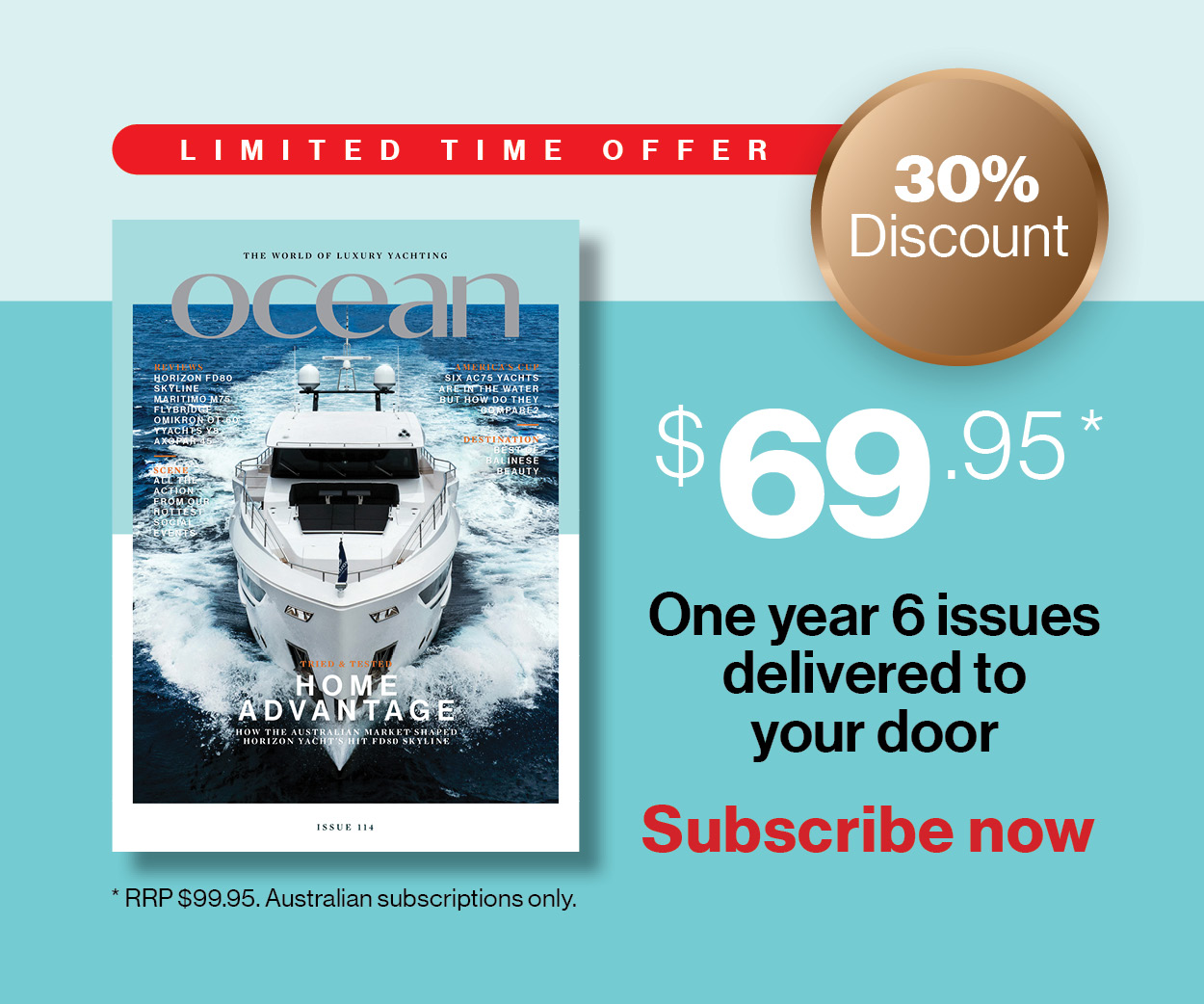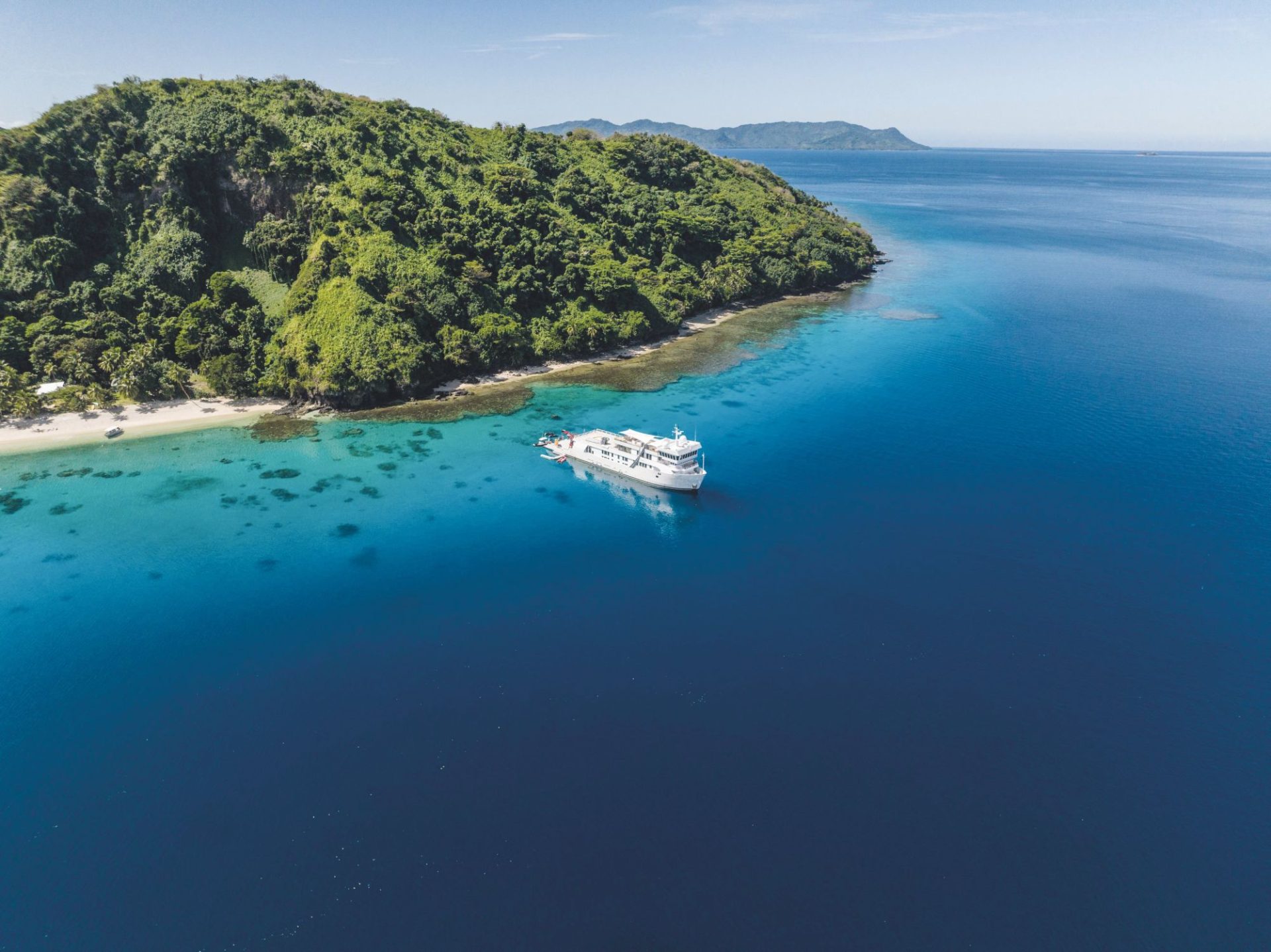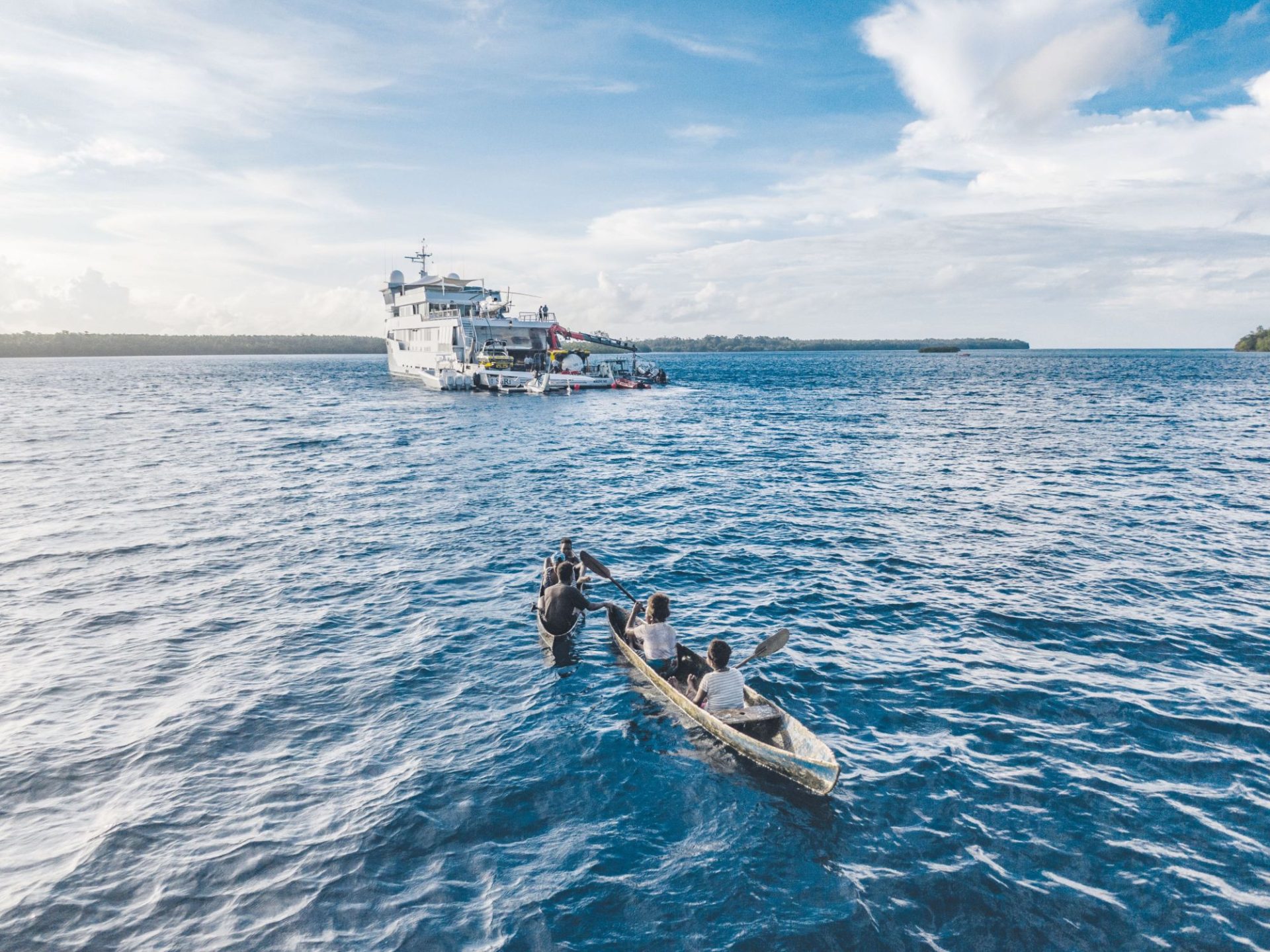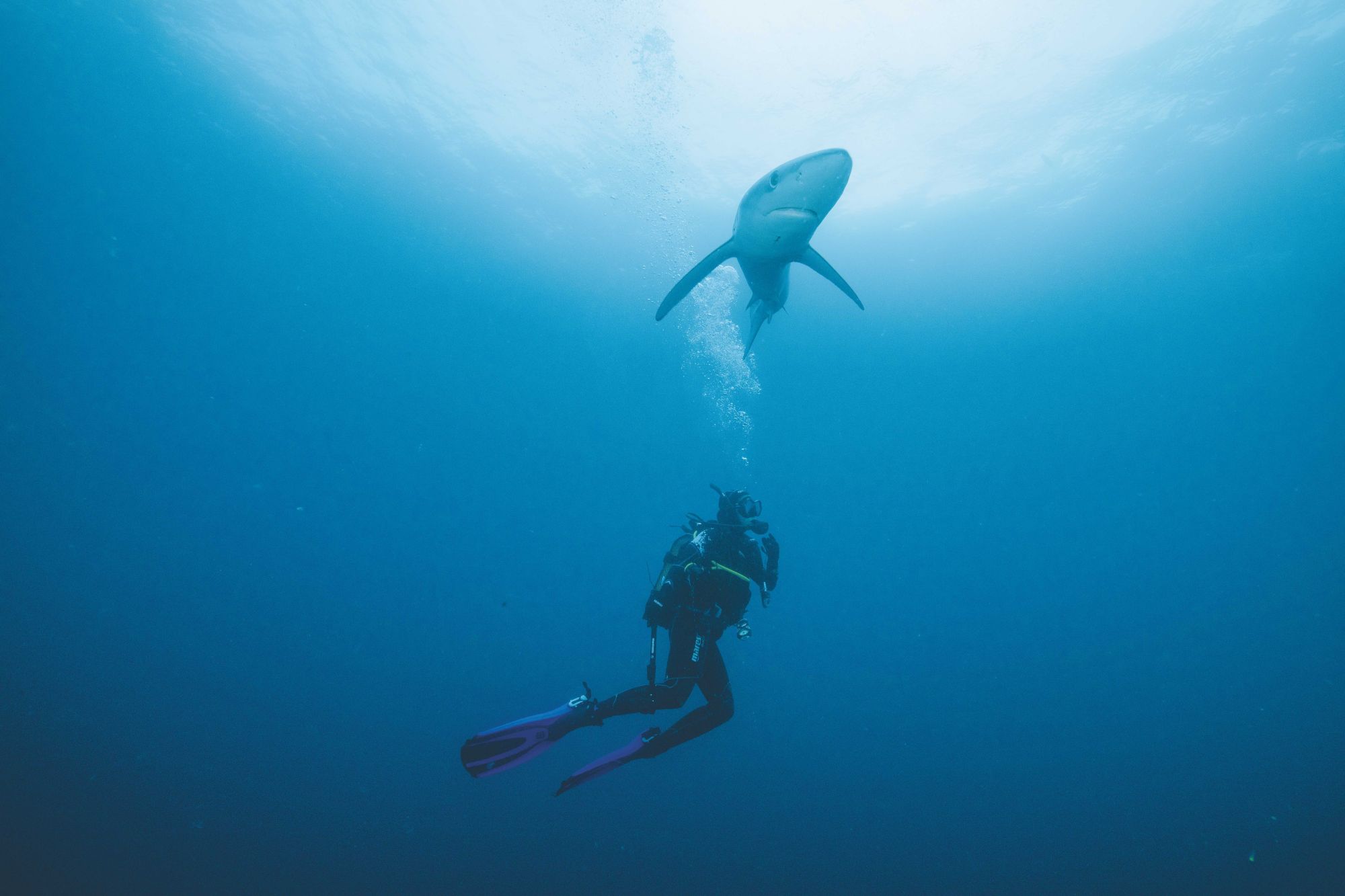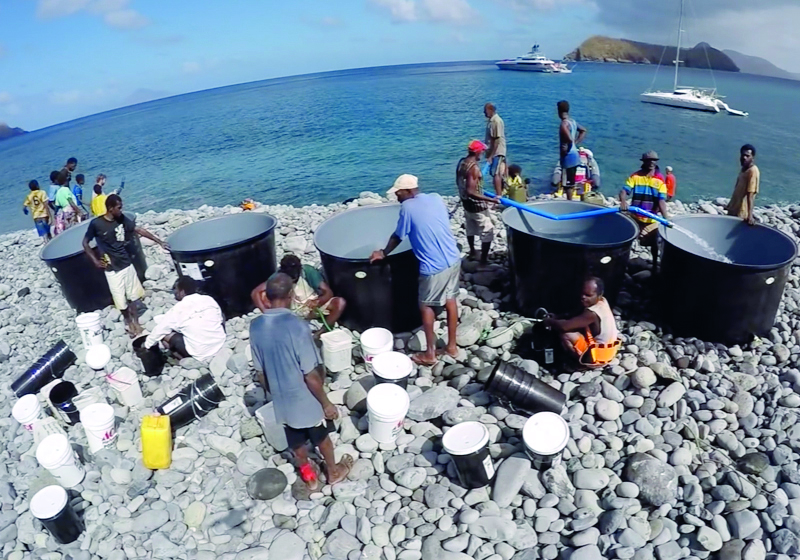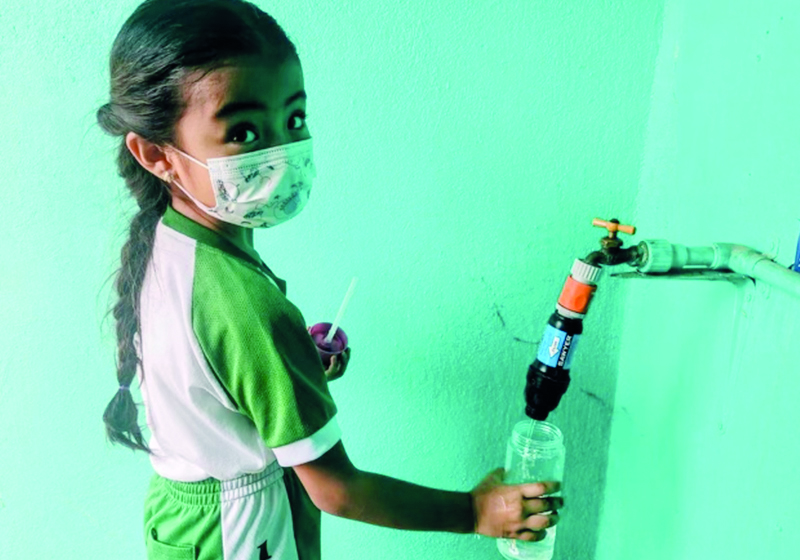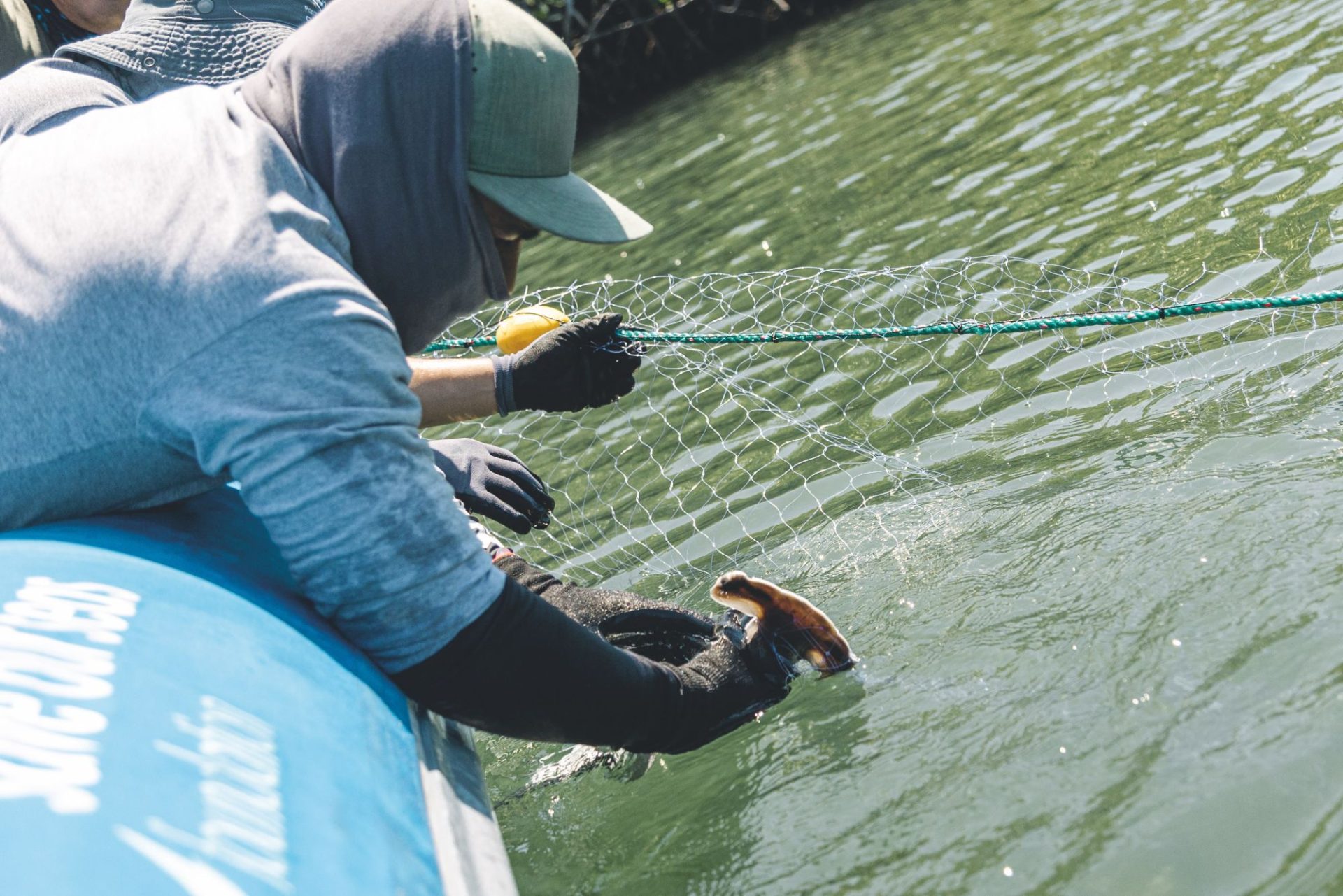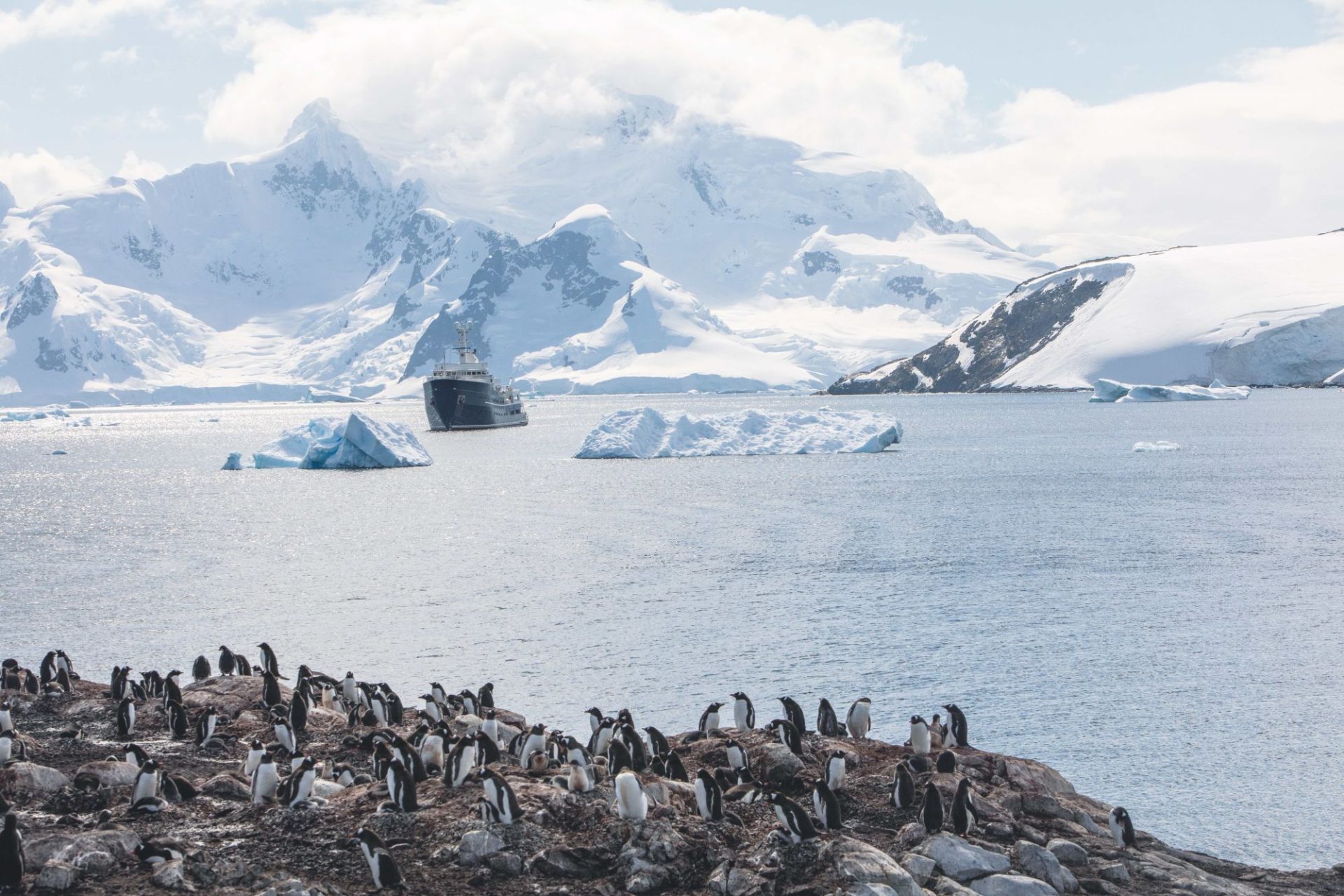Cruising with purpose
There’s a quiet revolution happening on yachts and superyachts all over the world as owners and crew think about how they can give back to remote peoples when visiting far-flung destinations – and it’s something we can all get involved in.
Written by Charlotte Thomas
17 August 2023
Yachts are unique in their ability to get to remote places and interact with coastal peoples and island cultures all over the world – and so, they’re also the perfect platforms to help those people in any number of ways. From small boat cruisers to superyachts, there’s a quiet but growing armada of yachts wanting to do more than just stroll on white sands and take in the sunset from the foredeck.
Many yacht owners – particularly at the superyacht end of the scale – have charitable and philanthropic foundations that count among their aims the support of ocean conservation, scientific research or community support. It was true for the late Paul Allen, co-founder of Microsoft and owner of the 126-metre Octopus, and also for 96-metre Vava II owner Ernesto Bertarelli, whose Bertarelli Foundation plays a significant role in this area.
And, of course, there’s the Minderoo Foundation, co-founded by Andrew Forrest and his wife Nicola, which has ocean conservation and Indigenous communities as a focus, and there are plenty more examples from the echelons of the hyper-wealthy to be found. The fact is, though, you don’t need to be a billionaire philanthropist to make a difference.
YachtAid Global (YAG) has helped over 300 yachts and superyachts take part in an extraordinarily diverse array of projects over the last 17 years, from donating books to remote community libraries to disaster relief and ocean monitoring projects.
It’s simple to take part, yet the impact even the smallest contributions can have is immense – and, as many yacht owners, charterers, guests and crew who’ve been involved can attest, it’s hugely rewarding.
The brainchild of former superyacht captain Mark Drewelow, YAG coordinates efforts on projects all over the world. In recent years, it has become particularly well known for disaster relief in remote communities and islands, where yachts can provide last-mile delivery of emergency supplies and aid without taking valuable local resources – yachts, after all, are like self-contained islands producing their own water and power.
However, that’s not where it all began for Drewelow and YAG, which he formed in 2006. “We started out doing what we would call blue-sky humanitarian projects, which are things that are not critical or time-sensitive in response to a disaster,” he explains. “Those projects, going back to 2006, were things like school aid in Costa Rica and Nicaragua, and looking at drinking water issues in Central America.”
The disaster relief came about as a natural extension of that because the team was plugged in with the locals in these communities. “Under times of extreme duress, they’d reach out to us as a conduit, knowing we could provide certain things,” says Drewelow. “Then, naturally, the requests started coming to us after the tsunami, or the earthquake, or the cyclone hit.”
YAG projects are overseen by Drewelow with YAG’s Global Director of Operations Zoran Selakovic, a former yacht captain with considerable experience building and scaling small to mid-size companies. Many of their projects – and many of the yachts that take part – fly under the radar, but some do see the light of day. The 73-metre SilverYachts-built Dragonfly, for example, has often been involved in Pacific missions, from Vanuatu disaster relief in 2015 to carrying doctors and nurses to help vaccinate remote Pacific communities.
For Neal Bateman, Head of Yacht Projects at specialist expedition company Cookson Adventures, yachts offer a fantastic platform for projects, which in turn can provide a terrific experience for those on board. “We do a lot of multi-generational trips, which in the past were typically led by the older generations,” he notes.
“In the last two years, however, we’ve seen a much younger demographic come through who are a lot more curious and willing to try new things – the younger generation of wealth is just naturally curious about the world.”
Bateman says they’ve not only seen a generational change in those involved in projects, but also a shift in people being proactive when it comes to adding science, conservation or humanitarian aspects to an adventure. “With the older generation, we’ve often taken the lead and put forward conservation and science ideas, and they’ve always wanted to be involved and have enjoyed the experience,” he says.
“It might have been that they’d been looking at a destination, and we’d say we could tie in amazing access to perhaps a vulcanologist in Italy, or research in the Galápagos. But the younger generation is actively requesting these things – they’re coming to us because they want to travel for a month or two, and they’re requesting to be actively involved with conservation or science or NGOs, for example.”
Bateman cites examples such as a multi-generational trip to Bhutan for a holiday where the family tied in visits to a prosthetics clinic and a dog shelter, both of which have now received funding from the family’s philanthropic foundation. On a smaller scale are yacht guests visiting places like Fiji and Tonga who have been entertained by the local chief and then sought to donate supplies or funds to the local school.
Much of the good that yachts do remains unknown, though. For Dilan Sarac, Executive Director of the Superyacht Life Foundation –which aims to promote the positive people of superyachting and the positive impact superyachts can have – it’s because yacht owners and crews understand that humility is a virtue and they prefer to let their actions speak for themselves.
“Their actions are driven by genuine altruism,” says Sarac. “They focus on making a difference rather than seeking attention. Also, they prioritise privacy and discretion, valuing the intimate and exclusive nature of yachting.”
Sarac also believes the rewards are more profound than just feeling like you’re helping out. “It’s a beautiful cycle,” she says.
“When yachts venture to remote and breathtaking destinations, everyone on board is deeply moved by the natural beauty surrounding them, and this sparks a strong desire to protect and preserve it,” she enthuses.
This, she says, leads to owners and crews increasingly looking to help by taking part in projects or donating time on their yachts to scientists or projects when they’re not on board. But, such actions go even further. “Let’s not forget about the children on board,” she stresses. “Even the smallest encounters with the wonders of marine life can leave a lasting impression on them.”
Involving families and children, especially in wildlife and nature, not only exposes them to real-world issues, she says, but also instils values of compassion, environmental stewardship and global citizenship from an early age. “It creates lasting memories and educational experiences that can inspire a lifelong passion for giving back and making a positive impact,” she adds.
For Drewelow, there’s a more fundamental reason the yachting community should be doing all it can to give back. “We, as an industry, have an obligation to help those communities that share their land, their sea and their spirit with us,” he says. “If you look at all these cruising yachts and superyachts going to all these unique places in the world, it’s because of the locals, who have nothing, and yet they host these yachts – that’s what keeps them coming.”
And, it’s what keeps an owner’s experience at such a level that they want to build another boat and bring more people out to replicate these amazing experiences, argues Drewelow. He says his team is seeing a trend whereby although humanitarian projects are a bit scary, they find captains and crew, owners and guests all understand that these people have nothing compared to those coming on yachts.
“We’re thankful to them, and have an obligation as an industry to help them,” he urges. “And it’s working. And it’s not just us as a team; YAG is a manifestation of the industry –we are you, and we are everybody together, collectively.”
Cruising with purpose is something that everyone can do and no matter how small the contribution of time or money, your actions can make a huge difference, not only to the lives of those less fortunate, but also to preserving the welcome that yachts receive when they visit the beautiful and remote corners of the world.
But, it’s also worth considering how to approach giving to a community or helping with disaster relief before you take the plunge. “Our advice is to do it through the right channels because it’s all about the right aid for the right people at the right time,” Drewelow advises. “We see it all the time, especially after disasters – it’s human nature that you want to help people, and the easy solution is to go into your garage and give away the things you don’t use. In almost all cases, that’s not the right thing to do, though.”
Also, it’s very easy to upset the balance that exists in areas like the Pacific or the islands north of Australia, where there’s a traditional culture and hierarchy of people. Drewelow cites cases of boats leaving New Zealand on their way to Tonga, Fiji or the Solomon Islands and loading up with clothes, cooking gear and fishing equipment with the idea of giving it away as they go. That, warns Drewlow, is the wrong approach – you need to reverse engineer it.
“Figure out where you’re going and who knows the village and the elders who can tell you what they actually need, and then get things to match that request,” he suggests. “You take these things and hand them over in a very particular way, so it doesn’t upset the local culture. In most cases, for the most common cruising routes, we already have operations in those areas and an established network reporting information back to us.”
Of course, if it proves easier, you can always donate money, knowing it can be spent locally and will definitely be used for the right things. Whichever approach you take, and however much or little you decide to do or contribute, you can be assured that the benefits will be felt far and wide – there really is no excuse not to get involved.
And, if you decide humanitarian projects aren’t your thing, there are also a growing number of options to get involved in science and ocean conservation efforts to add purpose to your cruising – but more on that in the next edition of Ocean.
yachtaidglobal.org
cooksonadventures.com
thesuperyachtlife.com


